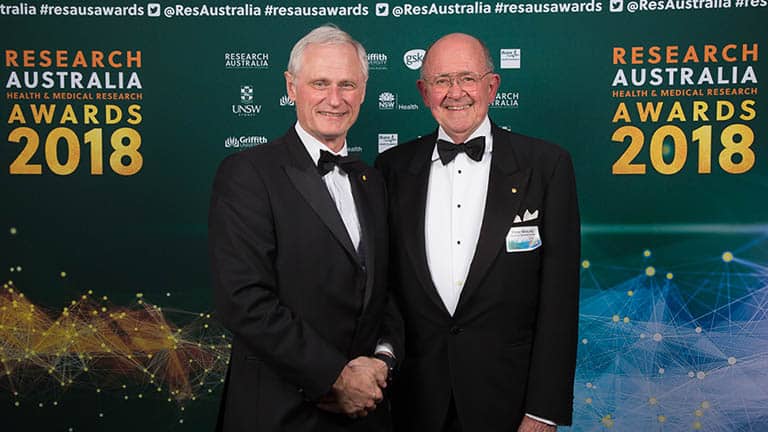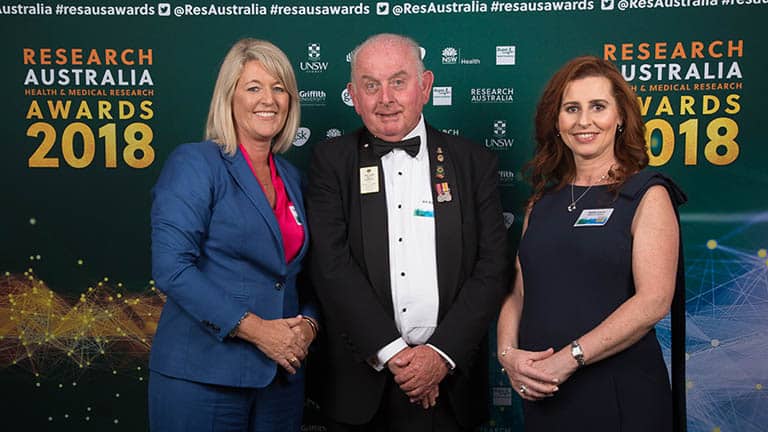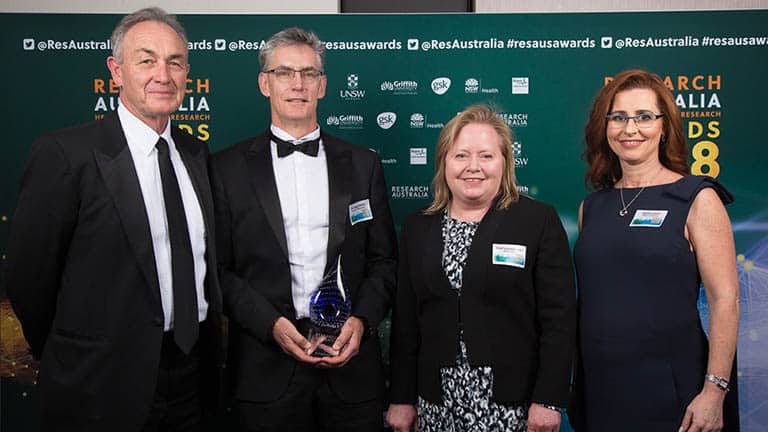
Hunter researchers have been recognised among the country’s best for improving the wellbeing of people in Australia and beyond.
Health and medical research from the University of Newcastle has been recognised among the country’s best for improving the wellbeing of people in Australia and beyond.
The renowned work of Laureate Professor Nick Talley, the Burges Family Trust and Dr Craig Dalton was celebrated across three categories at the prestigious Research Australia Health and Medical Research Awards held in Sydney last night.

Professor Talley, a global authority in the field of neurogastroenterology, received the Peter Wills Medal for his pioneering work into unexplained gut disorders that affect millions of people worldwide.
The Peter Wills Medal is the flagship award presented to a person who has made a long-term contribution to building Australia’s international reputation in health and medical research.
With a highly distinguished research career spanning more than 30 years, Professor Talley’s extensive contributions have led to changes in clinical practice around the world and offer new hope to people suffering from gut disorders such as irritable bowel syndrome and functional dyspepsia. He researches in conjunction with the Hunter Medical Research Institute (HMRI).

In a wonderful acknowledgement of generosity that has spanned two generations, the Great Australian Philanthropy Award was presented to the Burges Family Trust for its high impact and transformative quality to Australian health and medical research.
Established in 2003 by Bill and Stephen Burges in honour of their parents, Bill and Iris, the Trust has contributed more than $4 million to the continued support of medical sciences in the Hunter.
The Trust, through the University, supports the Bill and Iris Burges Professorship of Medical Science, which provided funding for the position of HMRI Director formerly held by Professor Michael Nilsson from 2012 until earlier this year.

Representing one of the most impactful new data innovations in the health and medical research sector in the past five years, the FluTracking health surveillance system led by Dr Craig Dalton received the Data Innovation Award.
As a joint initiative of the University, Hunter New England Population Health and HMRI, FluTracking started in 2006 and has become one of the largest crowdsourcing influenza surveillance systems in the world with more than 40,000 Australians reporting their flu symptoms each week.
The data helps health professionals detect seasonal influenza, pandemic influenza and other diseases throughout Australia to better protect the community from epidemics.
Acting Deputy Vice-Chancellor (Research and Innovation), Professor Brian Kelly, said the awards showcased the Hunter region’s medical research capabilities on a national scale.
“To be successful in three out of eight categories demonstrates the University’s impact and expertise in the field of health and medical research,” Professor Kelly said.
“These awards recognise the tireless commitment of our research staff who are working towards improving the health outcomes of all Australians, which wouldn’t be possible without the crucial support of philanthropy and funding.”
* HMRI is a partnership between the University of Newcastle, Hunter New England Health and the community.